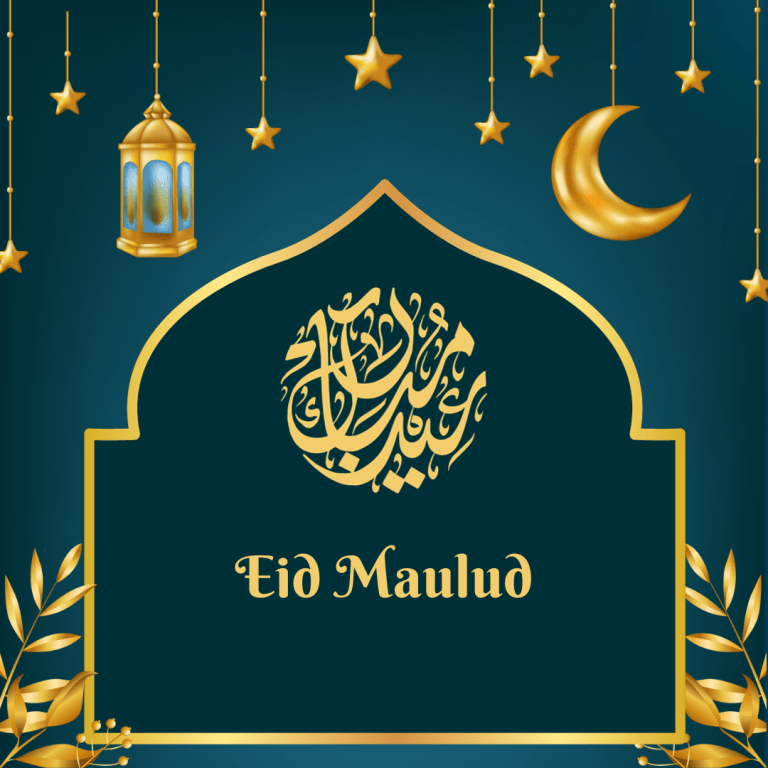Celebrate Prophet’s birthday, but emulate his teachings
Today Monday, September 16, 2024, is a public holiday declared by the Federal Government of Nigeria to mark this year’s Eid-el Mawlid. This is to commemorate the birth of the holy Prophet Muhammad, peace be upon him (PBUH). He was born on the 12th day of the Islamic lunar month of Rabiul Awwal to the […]

eid el maulud
Today Monday, September 16, 2024, is a public holiday declared by the Federal Government of Nigeria to mark this year’s Eid-el Mawlid. This is to commemorate the birth of the holy Prophet Muhammad, peace be upon him (PBUH). He was born on the 12th day of the Islamic lunar month of Rabiul Awwal to the family of Abdullahi and Aminah. This was in 570AD described in Islamic history as the Year of the Elephant. Yesterday, Sunday, September 15, 2024, was 12th Rabiul Awwal, 1446AH.
In Nigeria, the day is often celebrated and marked with events that include public processions and preaching sessions, which are usually not restricted to a particular time of the day. During such sessions, poetry books such as ‘Qaidat ul-Burdah’ authored by the famous 13th century Sufi scholar, Imam Busiri and similar books of eulogy that extol the virtues of Prophet Muhammad (PBUH) are recited and interpreted.
Describing Prophet Muhammad (PBUH), Allah states in Qur’an 33:21 “Ye have indeed in the Messenger of Allah a beautiful (pattern of conduct) for anyone whose hope is in Allah and the Final Day…” He is, indeed, an epitome of all the virtues required by mankind to live a peaceful and prosperous life. Prophet Muhammad (PBUH)’s character perfectly exemplifies honesty, contentment, modesty, kindness, compassion, humility, hospitality, tolerance, courtesy, good neighbourliness and altruism. His exceptional trustworthiness gave him the name “Al-Ameen” meaning “The Trustworthy.”
Sadly, the public and private lives of many of those who celebrate the prophet’s birthday do not reflect his true teachings. For example, the level of intolerance even among Muslims in Nigeria clearly contrasts with prophetic ideals. With the abandonment of what Eid-el Mawlid used to be among orthodox proponents of the event, the day has been reduced to no more than a mere work-free day where no lessons are learnt and imbibed from the life of the conveyer of the universal message of Islam.
- Kidnappers gun down Hotel owner, manager, guest despite N25m ransom
- Mob sets 2 ‘bandits’’ corpses ablaze in Kaduna
A celebration by individuals or groups whose character runs contrary to the basic teachings of the Prophet (PBUH) is not and cannot be the best way to sincerely celebrate or express love for him.
The best way to admire and revere the seal of prophets in Islam, and for whose sake Mawlid is marked, should be measured by the extent to which Muslims practice his orthodox traditions. The Treaty of Hudaybiyya signed by the Prophet (PBUH) with the Quraish pagans of Makkah in 628AD was a demonstration of the Prophet’s brand of religious tolerance.
The pact required the Prophet (PBUH) and his followers to abandon their plan to perform the lesser pilgrimage (Umrah) that year. Although his companions were unhappy with such a condition, they neither abused their leader, the Prophet (PBUH), nor took up arms against their persecutors. They persevered patiently until Allah came to their aid when their oppressors breached the pact; culminating eventually in the historic Conquest of Makkah.
The Madinan Constitution which did not only recognise the rights of Christians and Jews but also provided for their protection by Muslims illustrates a high sense of religious understanding under the singular leadership of the Prophet (PBUH). Dialogue, patience and understanding are some of the prophetic virtues Nigerians need today to live peacefully in their God-designed multi-faith and heterogeneous country. Easy recourse to violence even over matters that could be amicably resolved is un-prophetic.
In their roles as scholars, religious leaders should emphasise more on issues that unite the Ummah rather than those that seek to disunite them. Hate speech even against fellow Muslims should be avoided when calling others to Islam. Allah states in Qur’an 16:125, “Invite (all) to the way of Allah with wisdom and beautiful preaching…” The use of insulting and provocative language should be eschewed by preachers in their preaching activities.
The Prophet (PBUH) said, “Let whosoever believes in Allah and the Last Day speak good or remain silent…” The journey on the path of unity begins from the tongue. The more united members of the Ummah are, the stronger they stand; the huger their collective progress and development of the Ummah.
As we celebrate this year’s Mawlid, we call on Muslims to remain the prophet’s true heirs in their practice of Islam. We urge them to use this occasion to pray for leaders in the country; seeking Allah’s intervention in all the security and socio-economic challenges confronting Nigeria as a nation.
Daily Trust wishes all a Happy Mawlid celebration!
